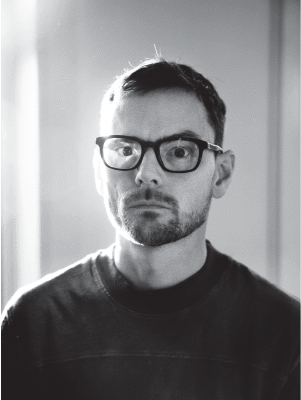KOÇ UNIVERSITY UNDERGRADUATE HUMANITIES SYMPOSIUM 02
14 DECEMBER 2018 || KOÇ UNIVERSITY RCAC / ANAMED
18 DECEMBER 2018
KOÇ UNIVERSITY RCAC / ANAMED
KEYNOTE ANNOUNCEMENT: MIKKEL BOLT RASMUSSEN

Announcing our keynote speaker for UHS 02: Mikkel Bolt Rasmussen from University of Copenhagen.
Rasmussen is an Associate Professor at the Department of Arts and Cultural Studies at University of Copenhagen. He has published a number of books on the Situationist International and modern art and politics, most recently After the Great Refusal. Essays on Contemporary Art, its Contradictions and Difficulties (Zero Books, 2018), Hegel after Occupy (Sternberg Press, 2018) and Trump’s Counter-Revolution (Zero Books, 2018).
CALL FOR PAPERS
See: Spam. Cognitive Capitalism. Praxis. Digital. Image Politics. Big Data. Torment. Subject. Resistance. Proxy. Neo-. Border. Moving Sands. Abject. VPN. Mental. Urban. AVI. Uncanny. Poetics. Space. Reproduction. P2P. History. Acme. Internet. Copy. Trauma. Pornography. Semiotics. Violence. Genealogy. Torrent. Projection. Dysphoria. Asphyxia. Archive. Museum. Instagram. GIF. Network. Pop. 4chan. Stream. Original. Binary. Narrative. Bitcoin. Βασανίζομαι.
Ours is the age of incessant politicization of everyday life. We feel its weight on our shoulders. Contemporary society often neglects self-criticism and reflection. It also confronts a deluge of misinformation on social media, often driven more by gut-reactions than informed consideration. This leads to feelings of paranoia, realities of lived trauma and fears of change. The carefully structured identities of the past are no more. Rather than embrace opportunities for dialogue, society has succumbed to new patterns: Unregulated circulation. Erratic networks. Xenophobia. In this moment of transition, where, how and with whom do find positive pathways forward?
The 2018 Koç University organizing committee for the upcoming Undergraduate Humanities Symposium (UHS) invites all to question, discuss and dismantle the anxiety spurred from ever changing paradigms of the 21st century, as well as the legacies that may have emboldened them. This year our scope and scale is broader: UHS will accept papers from different fields with a focus on the humanities as well as other related disciplines, such as the social sciences, politics, and health.